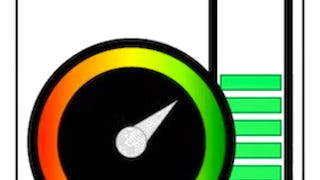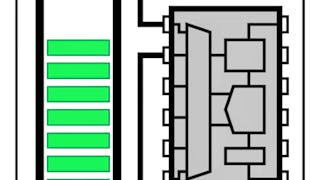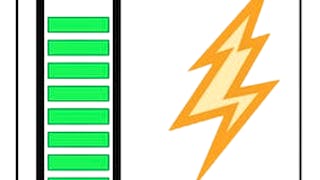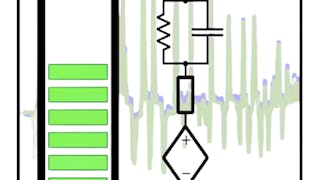This course can also be taken for academic credit as ECEA 5733, part of CU Boulder’s Master of Science in Electrical Engineering degree.


Gain next-level skills with Coursera Plus for $199 (regularly $399). Save now.


Battery State-of-Health (SOH) Estimation
This course is part of Algorithms for Battery Management Systems Specialization

Instructor: Gregory Plett
15,621 already enrolled
Included with
(158 reviews)
What you'll learn
How to implement state-of-health (SOH) estimators for lithium-ion battery cells
Skills you'll gain
Details to know

Add to your LinkedIn profile
31 assignments
See how employees at top companies are mastering in-demand skills

Build your subject-matter expertise
- Learn new concepts from industry experts
- Gain a foundational understanding of a subject or tool
- Develop job-relevant skills with hands-on projects
- Earn a shareable career certificate

There are 6 modules in this course
As battery cells age, their total capacities generally decrease and their resistances generally increase. This week, you will learn WHY this happens. You will learn about the specific physical and chemical mechanisms that cause degradation to lithium-ion battery cells. You will also learn why it is relatively simple to estimate and track changes to resistance, but why it is difficult to track changes to total capacity accurately.
What's included
8 videos14 readings7 assignments1 discussion prompt1 ungraded lab
Total capacity is often estimated using ordinary-least-squares (OLS) methods. This week, you will learn that this is a fundamentally incorrect approach, and will learn that a total-least-squares (TLS) method should be used instead. You will learn how to derive a weighted OLS solution, to use as a benchmark, and how to derive a weighted TLS solution also.
What's included
7 videos7 readings7 assignments4 ungraded labs
Unfortunately, the weighted TLS solution you learned in week 2 is not well suited for efficient computation on an embedded system like a BMS. As an intermediate step toward finding an efficient weighted TLS method, you will first learn a proportionally weighted TLS method this week. You will then learn how to generalize this to an "approximate weighted TLS" (AWTLS) method, which gives good estimates, and is feasible to implement on a BMS.
What's included
7 videos7 readings7 assignments4 ungraded labs
So far this course, you have learned a number of methods for estimating total capacity. This week, you will learn how to implement those methods in Octave code. You will also explore different simulation scenarios to benchmark how well each method works, in comparison with the others. The scenarios are representative of hybrid-electric-vehicle (HEV) and battery-electric-vehicle (BEV) applications, but the principles learned can be extrapolated to other similar application domains.
What's included
6 videos6 readings6 assignments5 ungraded labs
In the third course of the specialization, you learned how to use extended Kalman filters (EKFs) and sigma-point Kalman filters (SPKFs) to estimate the state of a battery cell. In this honors week, you will learn how to extend those concepts to apply EKF and SPKF to estimating the parameters of a battery-cell model if the state is known, and also how to simultaneously estimate both the state and parameters of a cell model.
What's included
6 videos6 readings4 assignments2 ungraded labs
You have learned several different total-capacity estimation methods. Some of these methods work better than others in general, but any method is only as good as the data you give it. In this project, you will explore a different way to determine the "x" and "y" data you use as input to the total-capacity estimation methods.
What's included
1 programming assignment1 ungraded lab
Earn a career certificate
Add this credential to your LinkedIn profile, resume, or CV. Share it on social media and in your performance review.
Build toward a degree
This course is part of the following degree program(s) offered by University of Colorado Boulder. If you are admitted and enroll, your completed coursework may count toward your degree learning and your progress can transfer with you.¹
Instructor

Explore more from Electrical Engineering
 Status: Free Trial
Status: Free TrialUniversity of Colorado Boulder
 Status: Free Trial
Status: Free TrialUniversity of Colorado Boulder
 Status: Free Trial
Status: Free TrialUniversity of Colorado Boulder
 Status: Free Trial
Status: Free TrialUniversity of Colorado Boulder
Why people choose Coursera for their career




Learner reviews
158 reviews
- 5 stars
78.48%
- 4 stars
16.45%
- 3 stars
3.16%
- 2 stars
1.26%
- 1 star
0.63%
Showing 3 of 158
Reviewed on Sep 11, 2022
Very informative course that explain the causes of degradation happen on battey cells and how to estimate the main quantities that affect the battery health using different regression techniques.
Reviewed on Aug 27, 2024
A great place to start understanding battery aging
Reviewed on Sep 22, 2020
It was very new to me, and very interesting stuff. It became even better with the instructor's skill.I would love recommending it to my friends
Frequently asked questions
To access the course materials, assignments and to earn a Certificate, you will need to purchase the Certificate experience when you enroll in a course. You can try a Free Trial instead, or apply for Financial Aid. The course may offer 'Full Course, No Certificate' instead. This option lets you see all course materials, submit required assessments, and get a final grade. This also means that you will not be able to purchase a Certificate experience.
When you enroll in the course, you get access to all of the courses in the Specialization, and you earn a certificate when you complete the work. Your electronic Certificate will be added to your Accomplishments page - from there, you can print your Certificate or add it to your LinkedIn profile.
Yes. In select learning programs, you can apply for financial aid or a scholarship if you can’t afford the enrollment fee. If fin aid or scholarship is available for your learning program selection, you’ll find a link to apply on the description page.
More questions
Financial aid available,







